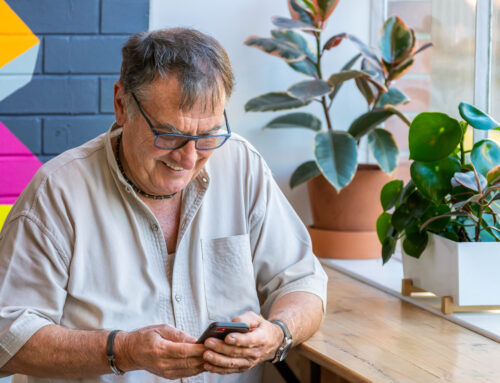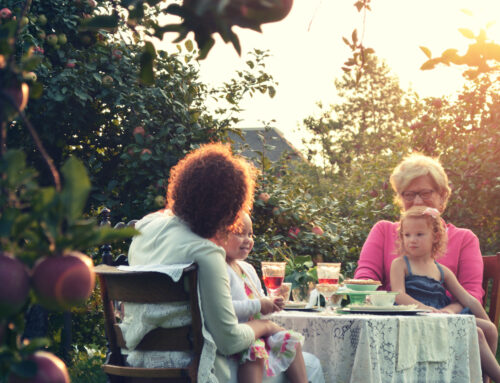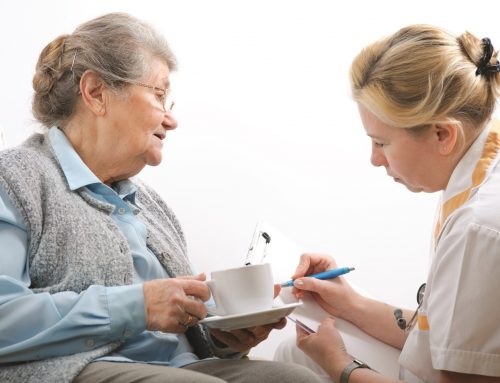CONTENT WARNING: Before reading any further please be aware this article mentions Family Domestic and Sexual Violence. If this article does raise any issues for you, please check out our page of services and supports here:
Exploring the unique experiences of older women who are victim-survivors of family domestic and sexual violence
From November 2023 to November 2024, The Plug-in was delighted to partner with Office for Women to undertake a project to better understand the unique experience of older women who experience Family Domestic & Sexual Violence (FDSV) in the South Australian context. This project enabled an in-depth analysis with service providers, community members and lived experience advocates to explore the complexity of this important issue impacting older women.
This four staged project, explored particularly through a series of engagement activities, how current services and resources intersect with elder abuse strategies, barriers that inhibit older women accessing services, and pathways to supports and what future efforts could look like to mitigate some of the barriers faced by older women in South Australia.
Older Women and the interrelation between Family Domestic & Sexual Violence
From the research, it was clear that domestic violence does not discriminate by age, however, it has been found that the intersectionality of age, gender and violence is often missing from academic literature and research. Consequently, the unique experiences of older women, who are experiencing, or have experienced, violence are often invisible and rather get conflated with discourse regarding elder abuse.
Given that people aged 65 years and over account for approximately 16% of the Australian population and by 2066 that figure is estimated to increase between 21–23%, the experiences of older women must be considered if we are to end violence against all women.
Key Findings:
- There are entrenched sexist and ageist attitudes and beliefs that drive behaviours of DFSV.
- Community education and awareness raising is pivotal in preventing DFSV, especially for older women who have experienced a lifetime of gendered disadvantage.
- It has been identified that links to services have improved outcomes for victim-survivors.
- Equipping non-specialised services with the tools to identify the signs of DFSV is essential for effective early intervention particularly for older women.
- Cross-collaboration approach should be adopted with enhanced informing sharing guidelines.
- Shame, guilt and fear of consequences created significant barrier to seeking support.
- Awareness of violence can be difficult for older women, particularly women who have had a lifetime of their experiences of violence dismissed.
- Awareness of services in community is lacking, frequent funding changes contributed to this.
- There is an undersupply of crisis accommodation tailored to the needs of older women.
- Lack of housing stability and finances are two key resources hindering older women to seeking and accessing support.
- Distrust of formal services is creating a barrier to older women seeking service support.
- Underpinning all best practice support is a trauma-informed and holistic approach tailored to victim-survivors’ needs.
- Community hubs and support groups are valued for removing barriers to seeking support especially with co-location of services in local community. • Resource accessibility and availability to access services and resources long term is crucial to support victim-survivors’ long-term healing journeys.
- Educating victim-survivors about their rights and options is important to ensure informed decisions can be made. Education in the form of long-term recovery is also important to support with processing trauma experienced.
It was a privileged to work alongside service providers, community members and lived experienced advocates. It was also a pleasure to work collaboratively with a specialised steering committee that were consulted with at every stage of the project. All the participants were invaluable in the project, we thank everyone that have contributed to the important project.
Deliverables
The final component of the project was the development of a resource – a series of posters aimed at raising awareness among older women and the broader community: the posters direct people to information about support services on COTA SA’s webpage. The development of these resources aim to champion lived experience victim survivors alongside supporting enhancement of community awareness.
The posters aim to target some of the key barriers we heard about in interviews to seeking help. They also aim to shed light on areas of control that older women may not have considered as a form of violence, and highlight that gendered violence is everyone’s concern in community.
The intent now is to distribute the posters to as many public locations as possible to help raise awareness of violence against older women. Key service providers have already started receiving copies of the posters along with community hubs. The hope is to get posters up in as many public spaces as possible, such as GP clinics, to raise awareness in community.
To access printable posters, click the button below:
Further advocacy activities beyond the project
Beyond the scope of the project, The Plug-in have presented the research findings to support with systematic change. The hope of this is to ensure Older Women’s experiences are at the forefront of the issue. Specifically, The Plug-in have:
- Met with the Royal Commission into DFSV team to presenting findings from the research.
- Met with the Department of Human Services Preventative team into DFSV to presenting findings from the research.
- Provided a submission to the Royal Commission into DFSV summarising the findings of having the unique needs of older women in SA at the forefront of the discussion.
If this article has raised concerns for you, we encourage you to seek support.
In an emergency, dial 000
- 1800 RESPECT (1800 737 732) – 24-hour national sexual assault, family and domestic violence counselling line
- Domestic Violence Crisis Line (SA) (1800 800 098) – crisis counselling, support and referral to safe accommodation
- Elder Abuse Help Line (1300 651 192) – information and support for people experiencing or witnessing abuse of an older person
- Adult Safeguarding Unit (SA) (1800 372 310) – Mon-Fri 9am-5pm, support line for free confidential advice, information or to make a report of abuse
- Child Abuse Report Line – 13 14 78
- 13 Yarn (13 92 76) – crisis support line for Aboriginal & Torres Strait Islander mob feeling overwhelmed or having difficulty coping
- Nunga Mi:Minar Domestic and family violence support for First Nations women – 1800 003 308, 8367 6474
- Migrant Women’s Support Program Domestic and family violence support for culturally and linguistically diverse women – 8152 9260
- MensLine Australia (1300 789 978) – 24-hour support for men dealing with family violence and relationship difficulties
- No to Violence Men’s Referral Service (1300 766 491) – support for men who use violence
- Lifeline (13 11 14) – support line for those experiencing personal crisis
- SA Yarrow Place Rape & Sexual Assault Service – 1800 817 421
- Another Closet Domestic and family violence support for the LGBTIQA+ community – 1800 65 64 63
- Safe Pets Safe Families SA (foster/crisis intake pet service) – 0490 818 879
Through your participation and contribution, you are raising the voices of older people and supporting the important work of COTA SA.
You can contact The Plug-in anytime to learn more about this project and other opportunities:
08 8224 5526
email to: connect@theplugin.com.au
https://www.facebook.com/ThePluginAus





